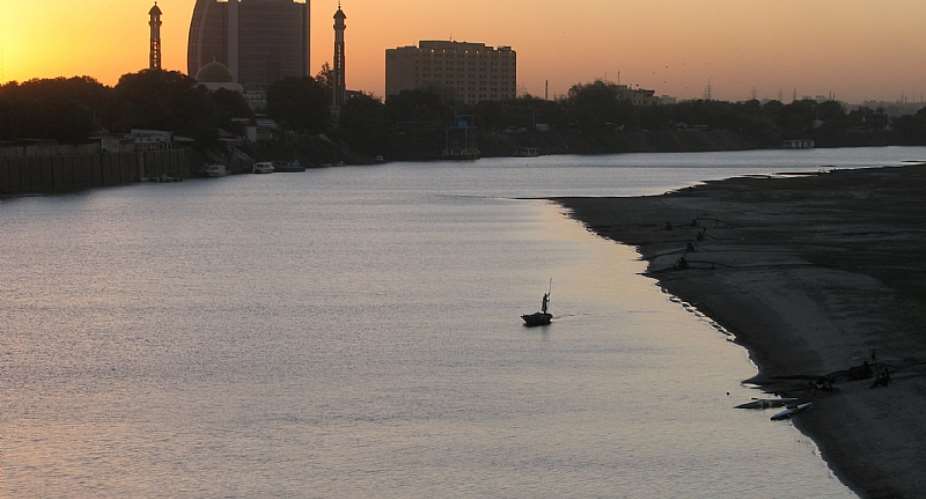Several days of protest triggered by an increase in the price of bread and petrol have created a serious political crisis for the government of Sudan. The core reason for the civil eruption is the adherence by the leadership of Sudan to the diktats by the International Monetary Fund (IMF) and World Bank (WB), who have ordered the removal of subsidies for food and fuel. Sudan has been told by the Western financial institutions that its people must continue to suffer economically for future consideration of partial debt forgiveness.
These same organizations have insisted that so-called market forces must determine the valuation of the Sudanese Pound. Unfortunately, Sudan acquiesced resulting in a steep devaluation of their currency causing more hardship for the already suffering Sudanese people. This is no exaggeration. During the 2018 Spring Bank/Fund meetings in DC, I attended as a journalist, the discussion with officials from the IMF/WB, US State Department, European nations, et al and representatives from Sudan. When I objected to the economic conditions that Sudan was being bludgeoned to submit to, the WB/IMF officials responded that the Sudanese people will have to undergo more pain. Their justification? It was necessary for Sudan to reduce those state expenditures that provided some economic relief for its people. That dialogue confirmed what I already knew: IMF/WB policies are not good for a nation’s health.
I re-emphasized to my Sudanese friends in the strongest terms what I have been telling them for years; for the welfare of your nation, Sudan must break from these policies. I warned my friends that the same political-financial forces who have been unsuccessful in trying to remove President Omar al-Bashir and weaken the National Congress Party for the last 25 years would change tactics. Now the enemies of Sudan will use the legitimate frustrations of the population against these harsh economic conditions to mobilize the Sudanese for regime change. There is no doubt in my mind that there are agents operating on the ground in Sudan to channel these protests into a movement for the over throw of President al-Bashir.
A repressive response will not succeed in quelling the people’s anger. In fact, that is what the enemies of Sudan are expecting. What is immediately required to prevent this crisis from escalating to a full-scale destabilization pf the nation is; 1) an abrupt termination of the IMF/WB prescriptions, and 2) articulating a national economic development plan that will utilize all of Sudan’s natural resources, most especially its people.
Review below interview with Lawrence Freeman on danger of protests in Sudan leading to regime change.





 This IMANI job no dey pap; the people you are fighting for are always fighting y...
This IMANI job no dey pap; the people you are fighting for are always fighting y...
 Prof. Naana Opoku-Agyemang has changed; you can see a certain sense of urgency –...
Prof. Naana Opoku-Agyemang has changed; you can see a certain sense of urgency –...
 MFWA Executive Director slams Akoma FM for engaging in ‘irresponsible’ media pra...
MFWA Executive Director slams Akoma FM for engaging in ‘irresponsible’ media pra...
 ‘Women must become millionaires too’ — Prof Jane Naana on establishment of Women...
‘Women must become millionaires too’ — Prof Jane Naana on establishment of Women...
 Some believe only in Ghanaian votes, not Ghana — Kofi Asare jabs politicians
Some believe only in Ghanaian votes, not Ghana — Kofi Asare jabs politicians
 Plan to make BEST sole aggregator of Sentuo Oil Refinery will create market chal...
Plan to make BEST sole aggregator of Sentuo Oil Refinery will create market chal...
 2024 elections: I can't have the man I removed from office as my successor — Aku...
2024 elections: I can't have the man I removed from office as my successor — Aku...
 2024 Elections: Immediate-past NPP Germany Branch Chairman garners massive votes...
2024 Elections: Immediate-past NPP Germany Branch Chairman garners massive votes...
 Gov’t focused on making Ghana energy self-sufficient, eco-friendly – Akufo-Addo
Gov’t focused on making Ghana energy self-sufficient, eco-friendly – Akufo-Addo
 April 25: Cedi sells at GHS13.74 to $1, GHS13.14 on BoG interbank
April 25: Cedi sells at GHS13.74 to $1, GHS13.14 on BoG interbank
